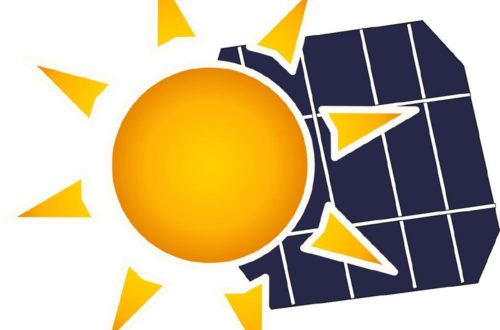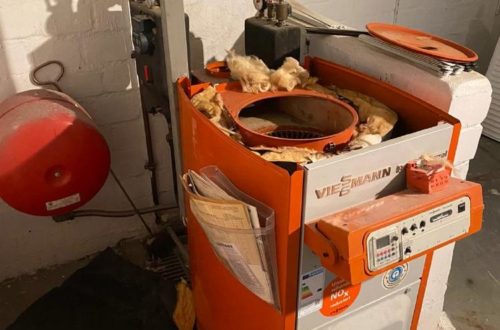TÜV SÜD: Standardized EU Packaging Regulation sets new standards in sustainability and circular economy
Stricter requirements for a healthy future and less waste
The new Packaging Regulation (PPWR) applies to all packaging and packaging waste placed on the market in the European Union, irrespective of the type of packaging or material used, and is thus relevant for companies in all sectors. It defines extensive requirements concerning recyclability and sustainable packaging design. A central aspect of the new Regulation is the obligation to regulate the overall life cycle of packaging with the goal of strengthening the principles of the circular economy, reducing packaging waste, and protecting consumers from substances of concern (SoC) in packaging materials.
“The Packaging Regulation that has now been passed is a milestone for the European circular economy. It provides companies with a clear framework for anchoring sustainability and the circularity concept in the packaging industry, while encouraging innovative solutions that will generate competitive advantages,” explains Dr. Robert Hermann, TÜV SÜD’s expert for sustainable packaging. “Companies now face the challenge of aligning their processes and packaging strategies to the Regulation. However, early adopters can also seize the opportunity to take on the role of sustainability pioneers.”
The most important new provisions are:
• Recyclability: From 2030, all packaging must be designed for recyclability.
• Use of recycled materials: Binding quotas for recycled content in plastic packaging will apply from 2030.
• Material separation: If packaging combines different materials, they must be easily separable.
• Reusability quotas: Binding reusability quotas will be introduced for beverage and other packaging.
• Restrictions of specific single-use packaging from 2030: e.g. single-use plastics for grouped packaging and for hospitality industry.
• Technical documentation: Manufacturers must perform a conformity assessment of their packaging in line with the new regulation and draw up a Declaration of Conformity.
• Environmental considerations in public procurement: The PPWR sets out binding minimum requirements to further demand for sustainable packaging.
• Reduction of packaging waste: EU Member States are taking action to achieve the minimum recycling target of 65 percent of all packaging waste generated by the deadline of December 31, 2025.
• Regulation of online retail: Packaging used in e-commerce must be designed more efficiently to minimize unnecessary empty space.
• Labelling requirements: Clearer and binding labelling will inform consumers more effectively about recycling options and the correct disposal of packaging.
• Ban on PFAS: The regulation prohibits the use of PFAS in food contact packaging if their concentration exceeds specific thresholds
The new Packaging Regulation is based on the revised EU Packaging Directive 94/62/EC, most recently updated by the Amending Directive (EU) 2018/851. This earlier directive laid the foundations for harmonization of the EU’s packaging and waste management industry. However, the provisions in the new Regulation represent a significantly more rigorous approach.
Differentiation between “producer” and “manufacturer”
The PPWR provides clarity concerning the terms “producer” and “manufacturer”, which have distinct definitions in the context of the regulation.
Manufacturer refers to the natural or legal person who manufactures the packaging itself; by contrast, a company is a producer if it places packaging on the market, irrespective of whether the packaging is made in the company’s country or internationally. For example: a yoghurt manufacturer that orders the yoghurt from China and sells the products in the EU. The term producer takes in extended producer responsibility (EPR) and refers particularly to the second part of the packaging’s lifespan after being placed on the market in a Member State, including disposal and recycling, both of which must be organized by the producer.
Delegated regulatory acts will address further aspects
The PPWR addresses the weaknesses of the previous Packaging Directive from 1994, while introducing delegated acts that establish a dynamic framework for further development in years to come. These delegated acts will regulate criteria including details of material composition, labelling, and other specific requirements.
TÜV SÜD: Partner for optimum packaging solutions
TÜV SÜD supports companies in fulfilling the requirements set out in the new EU Packaging Regulation and in developing sustainable packaging solutions. Offering a wide range of services, the testing, inspection, and certification (TIC) company provides in-depth professional expertise throughout the packaging supply chain:
1. Certification of recyclability: analysis and evaluation of packaging recyclability based on legal requirements
2. Certification of recycled content: ensures that plastic packaging contains the required levels of recycled content
3. Biodegradability testing: testing of biodegradability and during composting of packaging materials
4. Certification of plastic-free materials: analysis and evaluation of polymers in packaging
5. Life Cycle Assessment (LCA): critical evaluation of eco-footprint of packaging from manufacture to disposal
6. Returnability/reusability schemes: verification of the practicability and sustainability of returnable/reusable packaging and the associated schemes
7. Labelling and consumer information (Green Claims): support in developing and implementing legally compliant labelling concepts
8. DIN SPEC 91436: TÜV SÜD’s DIN-SPEC-91436 certification helps companies to reach the vision of zero waste more easily, by enabling them to measure the maturity of their waste management processes and document their efforts to reduce waste and use resources intelligently.
In addition, TÜV SÜD provides services including training courses and gap analyses that support companies along their transition to better packaging solutions. Close collaboration with manufacturers and suppliers can reveal potential for optimization and enable legally compliant solutions to be implemented. “Our comprehensive range of testing and certification services helps companies to overcome the challenges posed by the Packaging Regulation while making a positive contribution to the environment,” stresses Dr. Hermann. “The new Regulation is more than a mere piece of legislation: it is a call to play an active role in shaping the circular economy.”
More information on the Packaging Regulation and TÜV SÜD’s services
• Regulation – EU – 2025/40 – EN – EUR-Lex
• Biodegradable packaging certification | TÜV SÜD
• Certification mark for biodegradable product during composting | TÜV SÜD
• Circular Economy Solutions | TÜV SÜD
• Prüfung der Recyclingfähigkeit von Verpackungen | TÜV SÜD in Österreich
• LESS PLASTICS | TÜV SÜD in Österreich
• Green Claims | TÜV SÜD in Österreich
• DIN-SPEC-91436-Zertifizierung: Vision Zero Waste | TÜV SÜD
Founded in 1866 as a steam boiler inspection association, the TÜV SÜD Group has evolved into a global enterprise. More than 28,000 employees work at over 1,000 locations in about 50 countries to continually improve technology, systems and expertise. They contribute significantly to making technical innovations such as Industry 4.0, autonomous driving and renewable energy safe and reliable. tuvsud.com
TÜV SÜD
Westendstraße 199
80686 München
Telefon: +49 (89) 5791-0
Telefax: +49 (89) 5791-1551
http://www.tuvsud.com/de
Pressesprecher
Telefon: +49 (89) 5791-1592
Fax: +49 (89) 5791-2269
E-Mail: Dirk.Moser-Delarami@tuvsud.com
![]()




